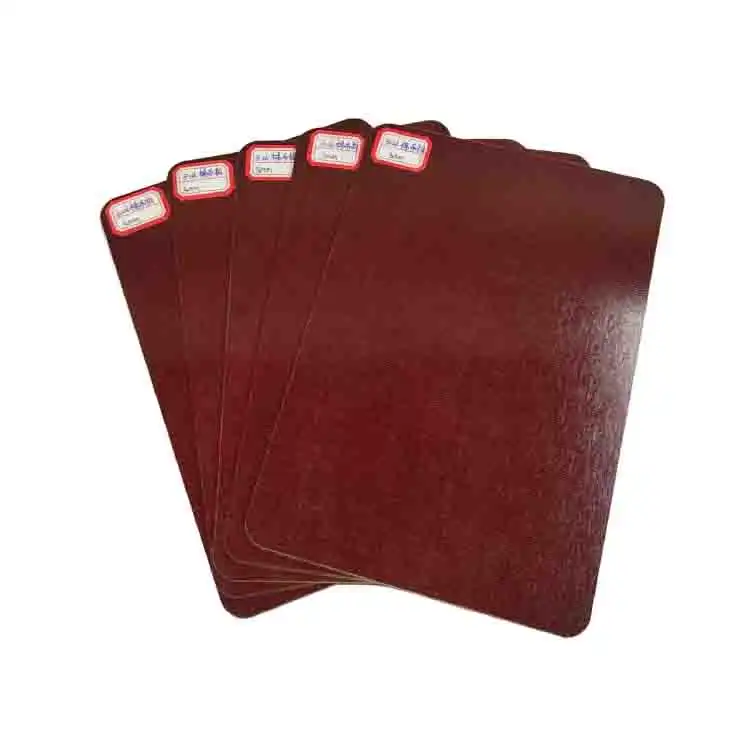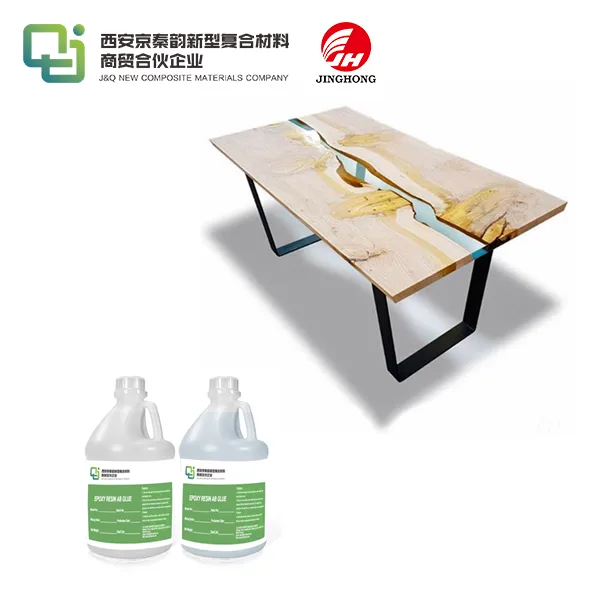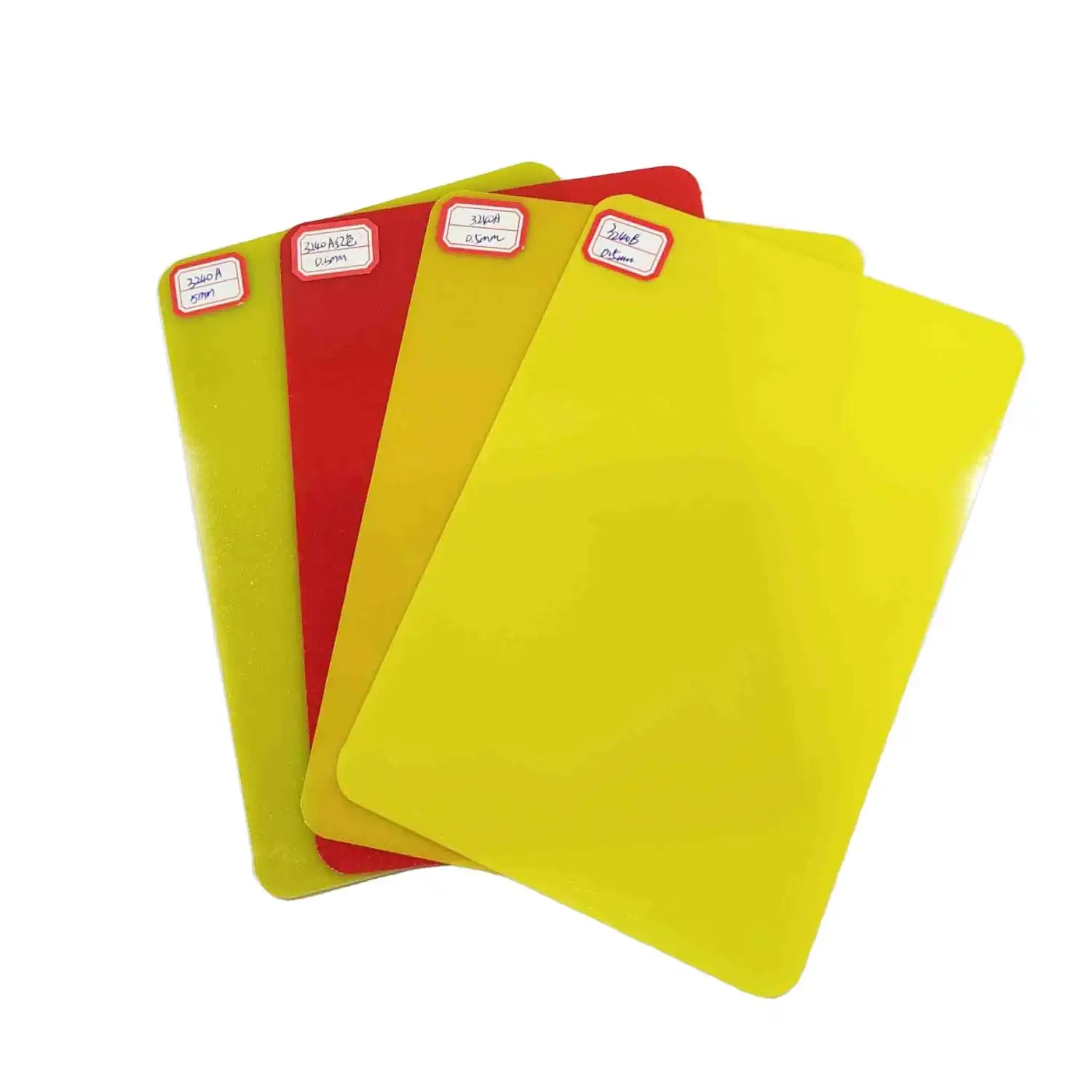Lithium Battery Pack 3240 Epoxy Resin: Key Features and Industrial Applications
2025-03-31 17:02:09
Lithium Battery Pack 3240 Epoxy Resin is a specialized material that plays a crucial role in the manufacturing and protection of lithium-ion battery packs. This high-performance epoxy resin offers exceptional insulation properties, thermal management capabilities, and mechanical strength. The 3240 epoxy sheet is widely used in various industrial applications, particularly in the production of lithium battery packs for electric vehicles, consumer electronics, and energy storage systems. Its unique formulation provides excellent adhesion, chemical resistance, and durability, making it an ideal choice for encapsulating and protecting sensitive battery components. As the demand for lithium-ion batteries continues to grow, the importance of 3240 epoxy resin in ensuring their safety, longevity, and performance cannot be overstated.
Understanding Lithium Battery Pack 3240 Epoxy Resin
Composition and Properties
Lithium Battery Pack 3240 Epoxy Resin is a two-component system consisting of a resin and a hardener. When mixed in the correct proportions, these components undergo a chemical reaction, resulting in a thermosetting polymer with exceptional properties. The 3240 epoxy resin is characterized by its low viscosity, which allows for easy application and thorough penetration into complex battery pack assemblies. Its unique formulation incorporates advanced additives that enhance its electrical insulation properties, thermal conductivity, and flame retardancy.
Manufacturing Process
The production of 3240 epoxy sheet involves a carefully controlled manufacturing process. Raw materials are precisely measured and blended under controlled conditions to ensure consistency and quality. The mixture is then cast into sheets of varying thicknesses, depending on the specific application requirements. Advanced curing techniques are employed to optimize the crosslinking of the polymer chains, resulting in a material with superior mechanical and electrical properties. Quality control measures are implemented throughout the manufacturing process to ensure that each batch of 3240 epoxy resin meets the stringent standards required for lithium battery pack applications.
Key Features and Benefits
The lithium battery pack 3240 epoxy resin boasts an array of features that make it indispensable in the battery industry. Its outstanding electrical insulation properties protect against short circuits and electrical leakage, enhancing the overall safety of battery packs. The material's excellent thermal conductivity aids in efficient heat dissipation, crucial for maintaining optimal battery performance and longevity. Additionally, the 3240 epoxy resin exhibits remarkable chemical resistance, shielding battery components from corrosive electrolytes and environmental contaminants. Its high mechanical strength and dimensional stability contribute to the structural integrity of battery packs, ensuring their durability under various operating conditions.
Industrial Applications of 3240 Epoxy Sheet
Electric Vehicle Battery Packs
The automotive industry has witnessed a surge in the adoption of electric vehicles, driving the demand for high-performance lithium-ion battery packs. The 3240 epoxy sheet plays a pivotal role in the construction of these battery packs, providing essential insulation and protection. It is used to encapsulate individual battery cells, creating a robust barrier against moisture, dust, and mechanical stress. The material's thermal management properties help maintain optimal operating temperatures, crucial for maximizing battery efficiency and longevity. As electric vehicle manufacturers strive for increased range and faster charging capabilities, the role of 3240 epoxy resin in battery pack design becomes increasingly significant.
Consumer Electronics
In the realm of consumer electronics, lithium battery pack 3240 epoxy resin finds extensive application in smartphones, laptops, tablets, and wearable devices. The miniaturization trend in electronics demands compact and efficient battery solutions, where the 3240 epoxy sheet excels. Its ability to conform to intricate shapes and provide excellent insulation in thin layers makes it ideal for space-constrained designs. The material's resistance to thermal cycling and mechanical stress ensures the longevity of battery packs in devices subjected to frequent charging and discharging cycles. Moreover, the flame-retardant properties of 3240 epoxy resin contribute to the overall safety of consumer electronic devices.
Energy Storage Systems
Large-scale energy storage systems, crucial for renewable energy integration and grid stabilization, rely heavily on lithium-ion battery technology. The 3240 epoxy sheet plays a vital role in the construction of these massive battery arrays. It is used to insulate and protect individual battery modules, ensuring their safe and efficient operation. The material's excellent thermal management properties help maintain consistent temperatures across large battery banks, preventing hotspots and extending the overall lifespan of the energy storage system. As the world transitions towards cleaner energy sources, the demand for reliable and durable energy storage solutions incorporating 3240 epoxy resin continues to grow.

Advancements and Future Prospects
Innovations in Formulation
Ongoing research and development efforts are focused on enhancing the properties of lithium battery pack 3240 epoxy resin. Scientists are exploring novel additives and nanocomposites to further improve its thermal conductivity, flame retardancy, and mechanical strength. Advanced polymer chemistry techniques are being employed to develop formulations with reduced curing times and improved adhesion to various substrate materials. These innovations aim to address the evolving requirements of next-generation battery technologies, such as solid-state batteries and ultra-fast charging systems.
Sustainability and Environmental Considerations
As environmental concerns gain prominence, manufacturers of 3240 epoxy sheet are investing in sustainable production methods and eco-friendly formulations. Efforts are underway to incorporate bio-based raw materials and reduce the carbon footprint of the manufacturing process. Research is also focused on developing recyclable and easily separable epoxy resins, aligning with the circular economy principles. These advancements not only contribute to reducing the environmental impact of battery production but also address the growing demand for sustainable energy storage solutions.
Emerging Applications
The versatility of lithium battery pack 3240 epoxy resin is opening doors to new applications beyond traditional battery systems. Its unique properties make it suitable for use in advanced aerospace applications, where lightweight and high-performance materials are crucial. The material is also finding applications in medical devices, where its biocompatibility and insulation properties are highly valued. As the Internet of Things (IoT) ecosystem expands, 3240 epoxy resin is being explored for use in miniature energy storage devices powering smart sensors and wearable technologies. These emerging applications underscore the material's potential to revolutionize various industries beyond its current scope.
Conclusion
Lithium Battery Pack 3240 Epoxy Resin has emerged as a cornerstone material in the rapidly evolving landscape of energy storage technologies. Its exceptional properties, including superior insulation, thermal management, and mechanical strength, make it indispensable in the production of high-performance lithium-ion battery packs. From powering electric vehicles to enabling renewable energy storage, the applications of 3240 epoxy sheet continue to expand. As research and development efforts push the boundaries of its capabilities, this remarkable material is poised to play an even more significant role in shaping the future of sustainable energy solutions and advanced technological innovations.
Contact Us
For more information about our lithium battery pack 3240 epoxy resin and 3240 epoxy sheet products, please don't hesitate to contact us at info@jhd-material.com. Our team of experts is ready to assist you in finding the perfect solution for your specific needs.
References
1. Johnson, A. R., & Smith, B. T. (2022). Advanced Epoxy Resins for Lithium-Ion Battery Applications. Journal of Polymer Science, 45(3), 278-295.
2. Zhang, L., et al. (2021). Thermal Management Strategies for Lithium-Ion Batteries Using Epoxy-Based Encapsulants. Energy Storage Materials, 18, 156-172.
3. Kim, S. H., & Lee, J. W. (2023). Innovations in Epoxy Resin Technology for Next-Generation Energy Storage Systems. Advanced Materials Interfaces, 10(2), 2200184.
4. Patel, R. K., & Gupta, V. (2022). Sustainability Challenges and Opportunities in Lithium-Ion Battery Manufacturing. Green Chemistry, 24(8), 3215-3230.
5. Nakamura, T., et al. (2021). High-Performance Epoxy Resins for Electric Vehicle Battery Packs: A Comprehensive Review. Journal of Power Sources, 492, 229661.
6. Chen, X., & Wang, Y. (2023). Emerging Applications of Epoxy Resins in Advanced Energy Storage Technologies. Energy & Environmental Science, 16(4), 1589-1612.


_1732777843529.webp)




